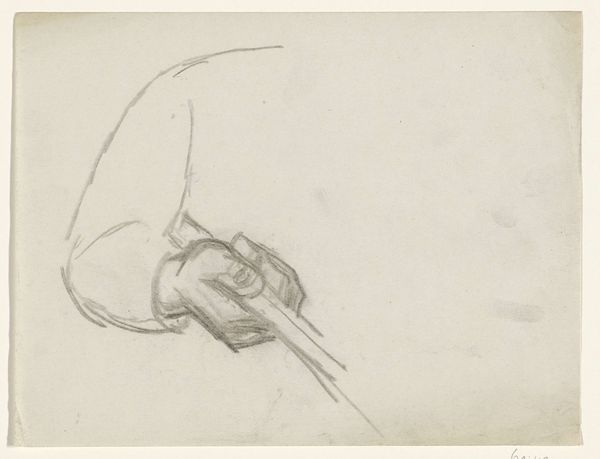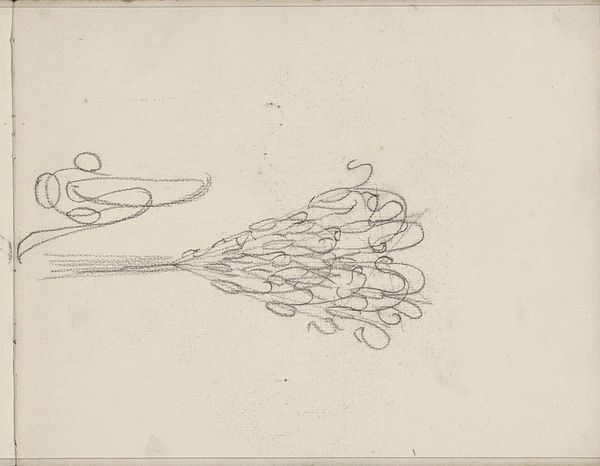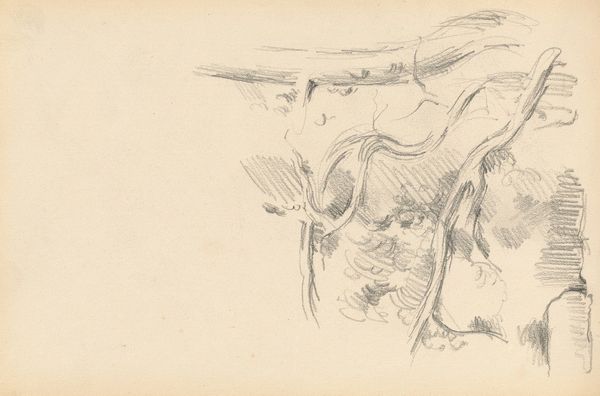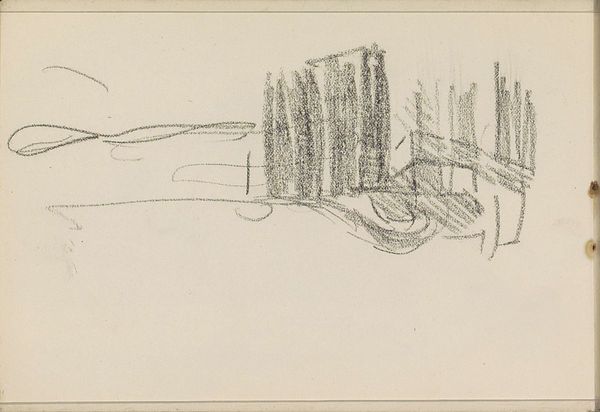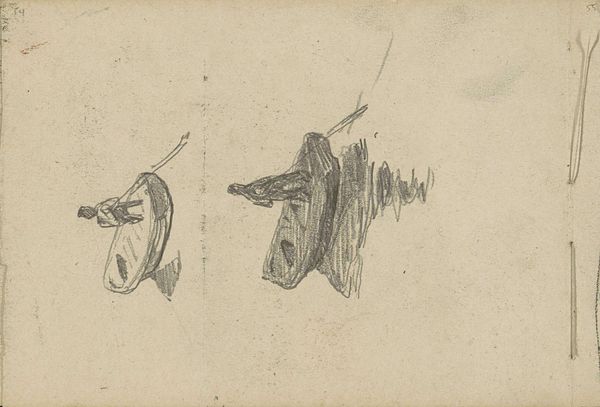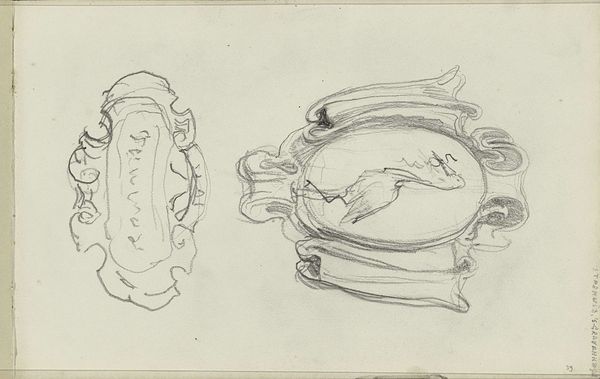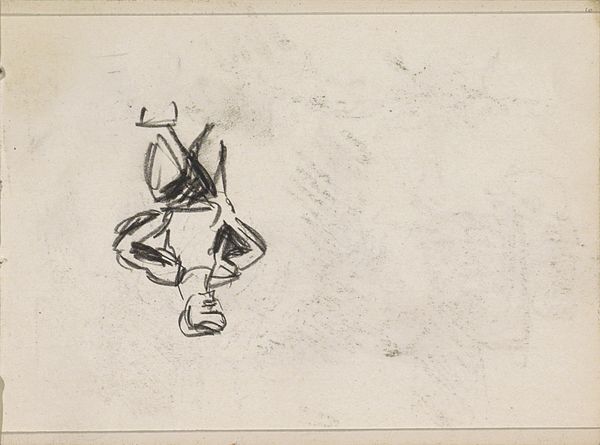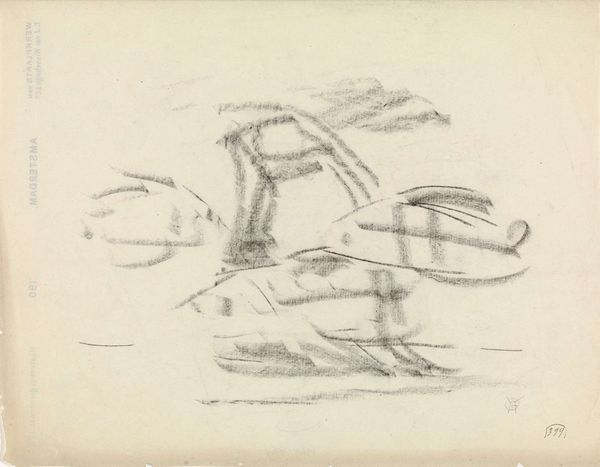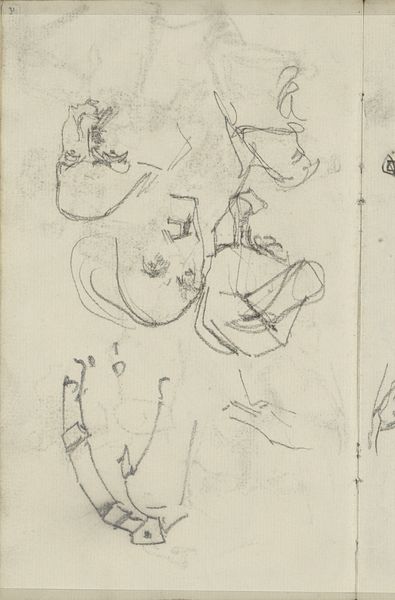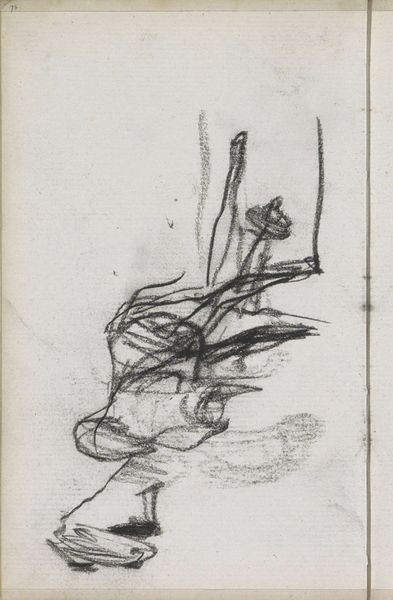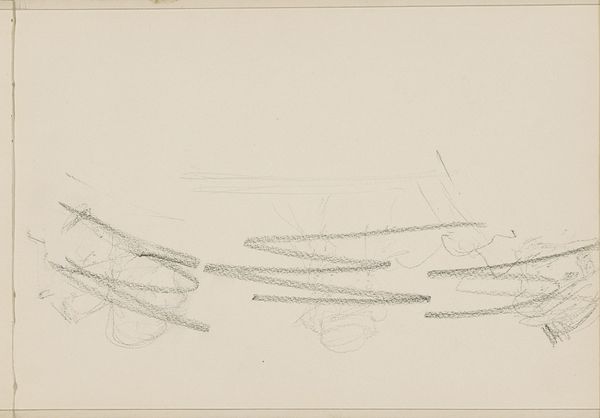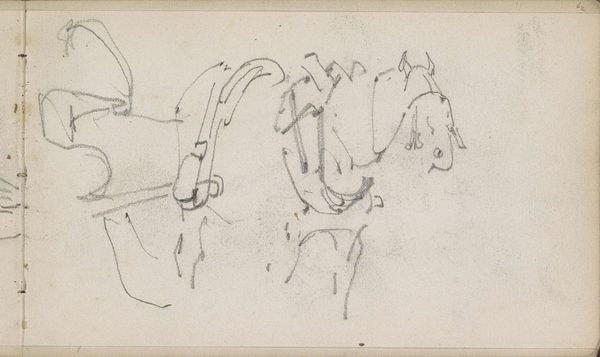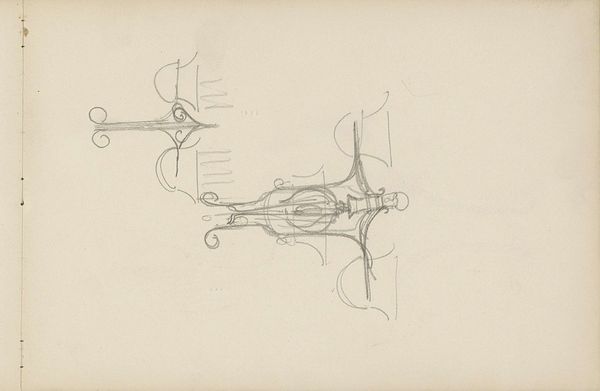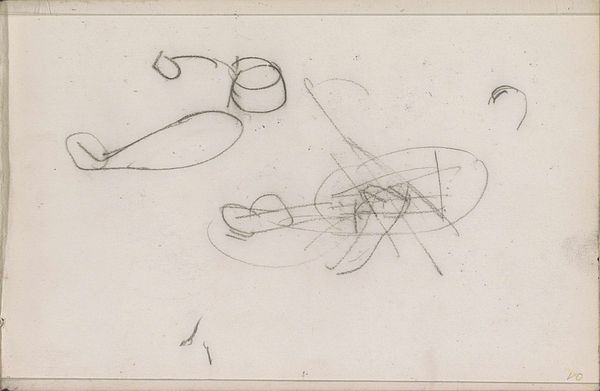
drawing, pencil
#
pencil drawn
#
drawing
#
impressionism
#
form
#
pencil
#
line
Copyright: Public Domain: Artvee
Editor: So, this drawing is titled "Fireplace Tongs and Poker" by Paul Cézanne, made sometime between 1887 and 1892. It’s a pencil drawing. I’m immediately struck by how simple it is – just these utilitarian objects sketched on what looks like basic paper, but the composition, even in its unfinished state, has a really compelling balance. What do you see in it? Curator: It's interesting to consider this work through the lens of Cézanne's overall project. Think about what it meant to depict humble, everyday objects during a time of grand historical paintings and idealized nudes. What statement is Cézanne making about art, and about what’s worthy of our attention? It shifts the focus to the immediate, domestic sphere. Editor: That makes me wonder if he was critiquing the art establishment? Like saying, "Hey, art isn’t just about grand narratives, it’s about…tongs?" Curator: Exactly! And more subtly than just mere tongs, it is about our lives and our lived environment. He elevates these mundane objects through close observation and considered depiction. What does it mean to imbue objects, readily available to be used by all classes, with this artistry? It subtly democratizes art, making it about experience rather than class or training. Editor: That’s a great point. So it's not just a drawing of tongs; it's about who gets to decide what "art" even is. And, perhaps the ability to find inspiration in simple subjects? Curator: Precisely. Think of it as Cézanne challenging the traditional hierarchy of subject matter. By focusing on these commonplace items, he asks us to reconsider our understanding of value – both in art and in everyday life. Editor: Wow, I hadn’t considered all those layers. It really reframes how I see his other work, too. Thank you. Curator: And I’ve learned as well. These domestic items and settings give more depth to the ways he saw the art world, its perception, and democratization of his artwork.
Comments
No comments
Be the first to comment and join the conversation on the ultimate creative platform.
